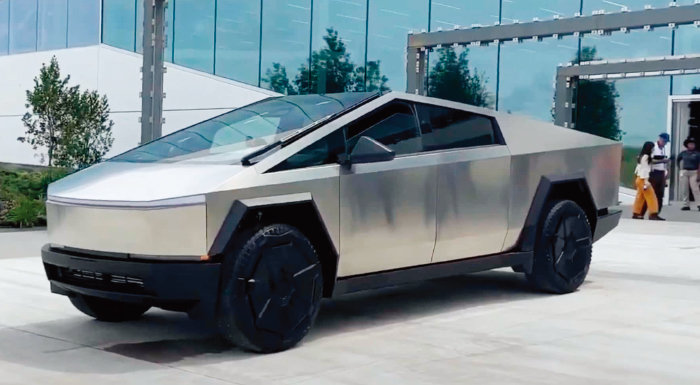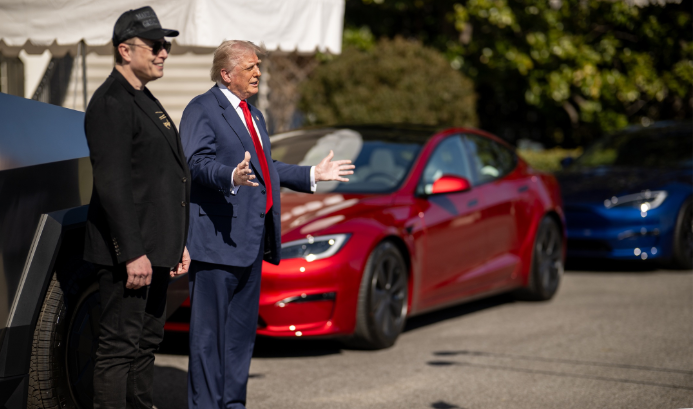Anti-Musk Sentiment Hits Tesla: From a Progressive Icon to a Boycott Target
Input
Modified
Production targets reduced and workforce reassigned to Model Y Tesla faces sharp decline in sales amid boycotts and recall crisis Cold reception even in the used car market

Once celebrated as a trailblazing icon of progressive innovation, Tesla is now weathering a storm of controversy, recalls, and consumer disillusionment. The company’s flagship electric pickup—the Cybertruck—once hailed as a futuristic marvel, has become emblematic of deeper woes surrounding its founder Elon Musk and his increasingly polarizing influence. From slashed production lines to acts of vandalism and public protests, Tesla’s fall from grace illustrates how quickly the tides can turn when public trust falters.
From Global Hype to Stalled Sales
The Cybertruck made waves when it was first unveiled, generating global headlines and over a million pre-orders, according to CEO Elon Musk. But behind the hype, Tesla is now quietly scaling back its production. On April 17, Business Insider reported, citing several Tesla employees, that production targets for multiple Cybertruck assembly lines had been drastically lowered. Some production lines are barely operational, and since January, staff at Tesla's Texas Gigafactory have been reassigned from the Cybertruck line to focus on the more stable Model Y.
These adjustments are not without precedent. Reports show Tesla intermittently halted Cybertruck production as early as October 2023. In December, the company even issued internal surveys to reassign workers more efficiently. The reason behind these cutbacks is straightforward: sales are floundering. Market research from Cox Automotive revealed that Cybertruck sales in the first quarter of 2025 dropped to just 6,406 units—barely half of the previous quarter’s numbers. In stark contrast to its initial promise, Tesla has delivered fewer than 50,000 units so far, despite enormous early demand. Now burdened with $200 million worth of unsold inventory, the Cybertruck’s future looks increasingly uncertain.
Recalls and Reputational Damage
Compounding Tesla’s troubles is the Cybertruck’s persistent quality issues. Marketed as a “bulletproof” beast, the vehicle has instead been plagued by embarrassing failures. Its 2019 debut became an internet spectacle when a live demonstration—intended to showcase the vehicle’s shatter-resistant windows—ended in disaster as a metal ball smashed the glass instantly.
Even after its long-delayed release in November 2023, the Cybertruck’s struggles continued. Within just six months, it has been recalled more than four times, with faults ranging from wiper motor failures and stuck accelerator pedals to jammed trunks and faulty trim. And the problems haven’t stopped there. A viral video last year captured a thief peeling off a Cybertruck window with his bare hands to steal a bag from inside. The vehicle’s owner, Anuj Thakkar, posted the footage online, voicing frustration that not only did the window come off so easily, but no alarm or phone alert was triggered. “Literally nothing happened until I discovered the damage,” he said, highlighting serious concerns about the truck’s security system.

The Spreading “Musk Risk”
Beyond mechanical issues, Tesla is also contending with a wave of public resentment directed at Elon Musk himself. His increasingly vocal political activity—particularly his associations with Donald Trump—has sparked fierce backlash among former supporters and progressive consumers. What began as dissatisfaction has escalated into outright hostility, including coordinated boycott efforts and even acts of arson.
One such incident occurred on March 3 at a Tesla charging station near Boston, where investigators determined that a deliberately set fire had caused extensive damage. The New York Times and other outlets linked the attack to growing anti-Musk sentiment. Elsewhere, Cybertruck owners have reported being publicly harassed—facing verbal abuse, graffiti, and even paintball assaults. “It’s shocking to be threatened just for driving my truck,” one owner said, adding that he frequently receives obscene gestures and insults while on the road. Another driver recounted a terrifying moment on the highway when a large truck refused to yield lanes, creating a dangerous situation.
The aggression hasn’t been isolated. On March 10, four Cybertrucks caught fire in a Seattle parking lot used for temporarily storing Tesla vehicles before delivery. Over 50 electric cars were parked at the site, but the Cybertrucks appeared to be specifically targeted. This climate of hostility has heavily impacted Cybertruck’s resale value—The Economic Times reports a 55% decline over the past year, with prices dropping over 10% more since the start of 2025.
Despite Musk’s pledge during a White House briefing to double U.S. vehicle production in the next two years, Tesla is facing intensifying competition, public protests outside its showrooms, and a crumbling stock price—down roughly 40% since January. Adding to the turbulence, a recent report by the Financial Times raised alarms over Tesla’s internal accounting practices, warning that its lax controls could indicate deeper vulnerabilities.
Once a symbol of the future, Tesla now finds itself at a crossroads—one shaped as much by mechanical missteps as by the divisive personality behind the brand. Whether it can regain its former luster remains to be seen.





















